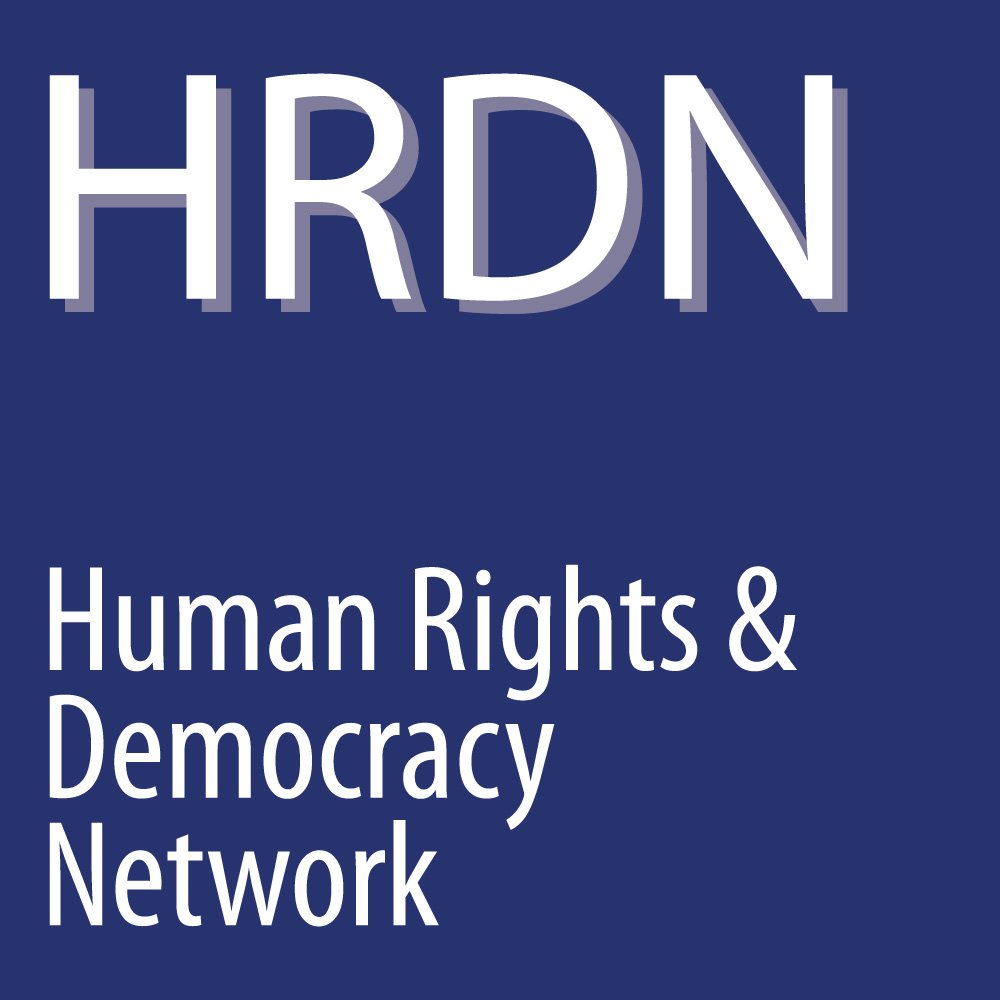HRDN Comments on Draft OECD DAC Guidelines
Brussels, September 1, 2025
Subject: Draft OECD DAC guidelines - Eligibility of human rights activities for ODA (DCD/DAC/STAT(2025)31).
Download the PDF version here.
Dear Sir/Madam,
The Human Rights and Democracy Network is committed to the defense of human rights worldwide and to the systematic integration of human rights into development policies (human rights-based approach).
The SDGs recognize human rights and the rule of law and its indicators include specific human rights elements. In this respect, we wish to share our serious concerns about the draft guidelines on the eligibility of human rights activities for Official Development Assistance (ODA), proposed by the OECD's Development Assistance Committee (DAC).
We welcome the initiative to clarify the eligibility of human rights activities for ODA. However, the starting point of any such attempt must be the recognition of human rights in development with an aim of strengthening human rights rather than seeking its exclusion from the development agenda. In the current version of the draft, there is what we consider to be an unacceptable division between “developmental” objectives and the so-called “moral and legal” motivation of human rights activities, which paradoxically calls into question their universality and indivisibility - principles which the DAC also recognizes in these draft guidelines. This artificial distinction runs counter to the SDG principles and its indicators.
A Legal and Political Responsibility for Member States
The draft guidelines, as they stand, will place member states in direct contradiction with their legal commitments. The Guidelines for Multinational Enterprises, the OECD Convention, and United Nations instruments make human rights a cross-cutting requirement. Our organizations’ actions and commitments are not incidental to development cooperation: they are its foundation. Development cooperation policy is a lever for many diplomatic efforts to promote human rights. There can be no development without human rights, and vice versa. These new guidelines run the risk of undermining these foundations, which are more than essential in a context of opening attacks against human rights and restriction of civic space.
Consistency with the Agenda 2030
The realization of human rights is not just a goal, but a lever for sustainable development. This complementarity is at the heart of the Agenda 2030, which makes fundamental rights a prerequisite for shared, sustainable prosperity. This agenda is based on the Sustainable Development Goals, which represent and illustrate the diversity, complementarity and indivisibility of the human rights enshrined in the International Bill of Human Rights.
To restrict eligibility to actions motivated by legal or moral grounds, such as the fight against the death penalty, access to justice, reparations or remedies for victims, or support for institutional mandates to protect human rights, would be to create an artificial and dangerous dichotomy. It would also be inconsistent with the international commitments of OECD member states, and with the principles of the organization itself.
A Long and Invisible process, but Lasting Results
It is well documented that the most disadvantaged in societies are often disproportionately affected by violations of their human rights. It is against this background, then, that our organizations defend and take care of victims, challenge institutions, and carry out legal, diplomatic, awareness-raising, and advocacy actions, often in hostile political or security contexts. Their impact - profound but sometimes not immediate - is long-term, and these actions - fundamental though they are - struggle to be recognized and financed. Yet it is they who lay the foundations for peace, security, and the rule of law. They are the essential and decisive sentinels of our democracies.
Our Collective Recommendations
We urge the DAC and member states to:
clearly recognize that activities to defend and promote human rights - including the fight against the death penalty, access to remedies and justice, protection of defenders, support for institutions - are eligible for ODA in line with the indivisibility and universality of rights;
abandon the restrictive and false distinction between “legal/moral” and “developmental” motivations, in favor of an approach based on the real effects on populations;
reinforce their international commitments by recognizing and affirming the importance of human rights activities;
reaffirm that ODA must remain a tool at the service of development that is inclusive, fair and respectful of fundamental rights.
We therefore call on member states to oppose the adoption of the draft as it stands, and to incorporate the relevant amendments we submitted into the text, as we fear that such changes risk compromising the coherence, legitimacy and effectiveness of ODA, and could pave the way for major setbacks in international solidarity. There can be no development without respect for human rights. Promoting human rights is a prerequisite for sustainable public policies, social cohesion and peace.
We thank you for your swift attention to this matter and remain at your disposal for discussion on this essential issue.
Yours sincerely,
HRDN
Co signatory with The Human Rights Platform (PDH) and its members
CONCORD Europe
The European Confederation of NGOs working on sustainable development and international cooperation
